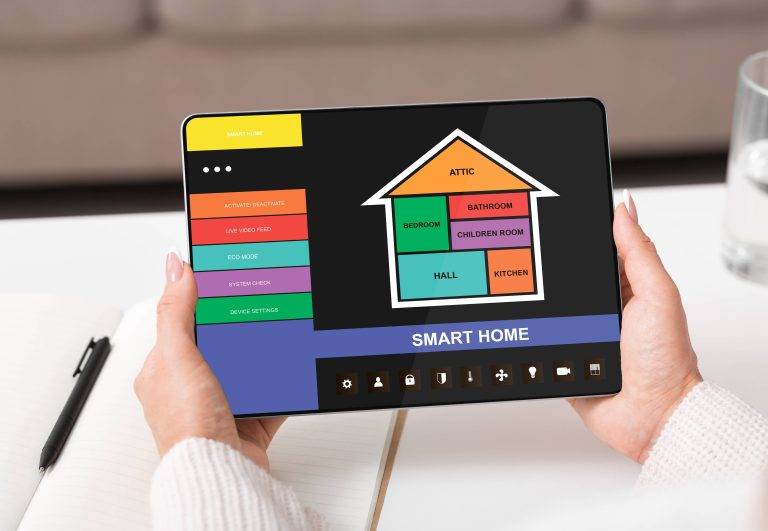
In recent years, the technological evolution in smart homes has been nothing short of revolutionary, with virtual assistants standing out as a cornerstone of this transformation. As we stride further into the era of sophisticated smart home technology, virtual assistants like Amazon Alexa, Google Assistant, and Apple’s Siri are not just trends; they are integral components orchestrating a harmonious blend of entertainment, comfort, and convenience. This blog post delves into the advancements and prospects of virtual assistants in smart homes, highlighting their newfound capabilities and exploring the potential future developments in this dynamic domain.
The Evolution of Virtual Assistants in Smart Homes
Virtual assistants have come a long way since their inception. Early versions, such as Apple’s Siri, initially offered basic functionalities such as setting reminders or playing music. Over time, these assistants have evolved into multifaceted platforms capable of managing numerous aspects of daily life.
1. Integration with Multiple Devices:
One of the most significant advancements has been the seamless integration of virtual assistants with various smart home devices. Today, virtual assistants can control a plethora of household gadgets—from smart lights and thermostats to security cameras and home entertainment systems. The ability to centralize control via voice commands or mobile apps has enhanced home automation, making it more user-friendly and accessible.
2. Enhanced Voice Recognition and AI:
Improvements in natural language processing (NLP) and artificial intelligence (AI) have made virtual assistants more intuitive and responsive. Enhanced voice recognition software can now comprehend and execute complex commands, even discerning individual users’ voices to provide personalized responses. This level of sophistication allows virtual assistants to deliver a tailored user experience, adapting to individual preferences and routines.
3. Expanded Functionality:
Modern virtual assistants are not limited to basic tasks. They can now manage daily schedules, order groceries, make restaurant reservations, play media content from various streaming services, and even provide real-time translations. These capabilities have transformed virtual assistants into indispensable household companions, streamlining many aspects of daily life.
The Prospects of Virtual Assistants in Smart Homes
As technology continues to advance, the potential for virtual assistants in smart homes is virtually limitless. Here are some emerging trends and future prospects that promise to redefine the landscape of smart home living:
1. Greater Interoperability:
The future will likely witness even greater interoperability between different brands and types of smart home devices. Currently, most virtual assistants work best within their own ecosystems (e.g., Alexa with Amazon devices, Google Assistant with Google products). However, initiatives like the Matter protocol aim to create a universal standard for smart home devices, enabling seamless communication and control across different platforms. This will simplify the user experience, allowing homeowners to mix and match devices regardless of brand.
2. Advanced AI and Machine Learning:
Ongoing advancements in AI and machine learning will further enhance virtual assistants’ capabilities. Future virtual assistants will be able to learn and predict user behaviors with greater accuracy, proactively suggesting actions based on past interactions and preferences. For instance, your virtual assistant might suggest dimming the lights and playing your favorite jazz music every evening, knowing that you prefer a relaxing ambiance after dinner.
3. Enhanced Security and Privacy Features:
As smart homes become more interconnected, ensuring the security and privacy of user data is paramount. Future virtual assistants will incorporate advanced encryption and security protocols to safeguard sensitive information. Additionally, improvements in biometric authentication (e.g., voice, facial recognition) will ensure that only authorized individuals can access and control smart home devices.
4. Improved Health and Wellness Integration:
Virtual assistants are poised to play a significant role in monitoring and enhancing health and wellness within smart homes. They could integrate with wearable devices and smart home health monitors to track vital signs, remind users to take medications, and even provide personalized fitness and nutrition advice. This integration could be particularly beneficial for elderly individuals and those with chronic health conditions, allowing them to live more independently and safely.
5. Augmented Reality (AR) and Virtual Reality (VR):
The convergence of virtual assistants with AR and VR technologies will open up new possibilities for home entertainment and comfort. Imagine receiving virtual fitness training in your living room, guided by your virtual assistant, or having your assistant project virtual décor options to help you redesign your home interiors. The immersive experiences offered by AR and VR, combined with the convenience of virtual assistants, will elevate smart home living to new heights.
Conclusion
The advancements and prospects of virtual assistants in smart homes indicate a future where technology seamlessly integrates into our daily lives, enhancing comfort, convenience, and entertainment. From improved interoperability and AI capabilities to heightened security and health integration, the potential for virtual assistants is boundless. As these technologies continue to evolve, they will undoubtedly transform smart home living, making it more intuitive, personalized, and immersive.
For smart home enthusiasts, staying abreast of these developments is essential. Embracing the latest in virtual assistant technology and understanding its potential can help homeowners optimize their living spaces, creating environments that are not only smart but also truly responsive to their needs and preferences. The future of smart homes, with its blend of innovation and intelligence, is an exciting frontier, and virtual assistants are at the forefront of this remarkable journey.







